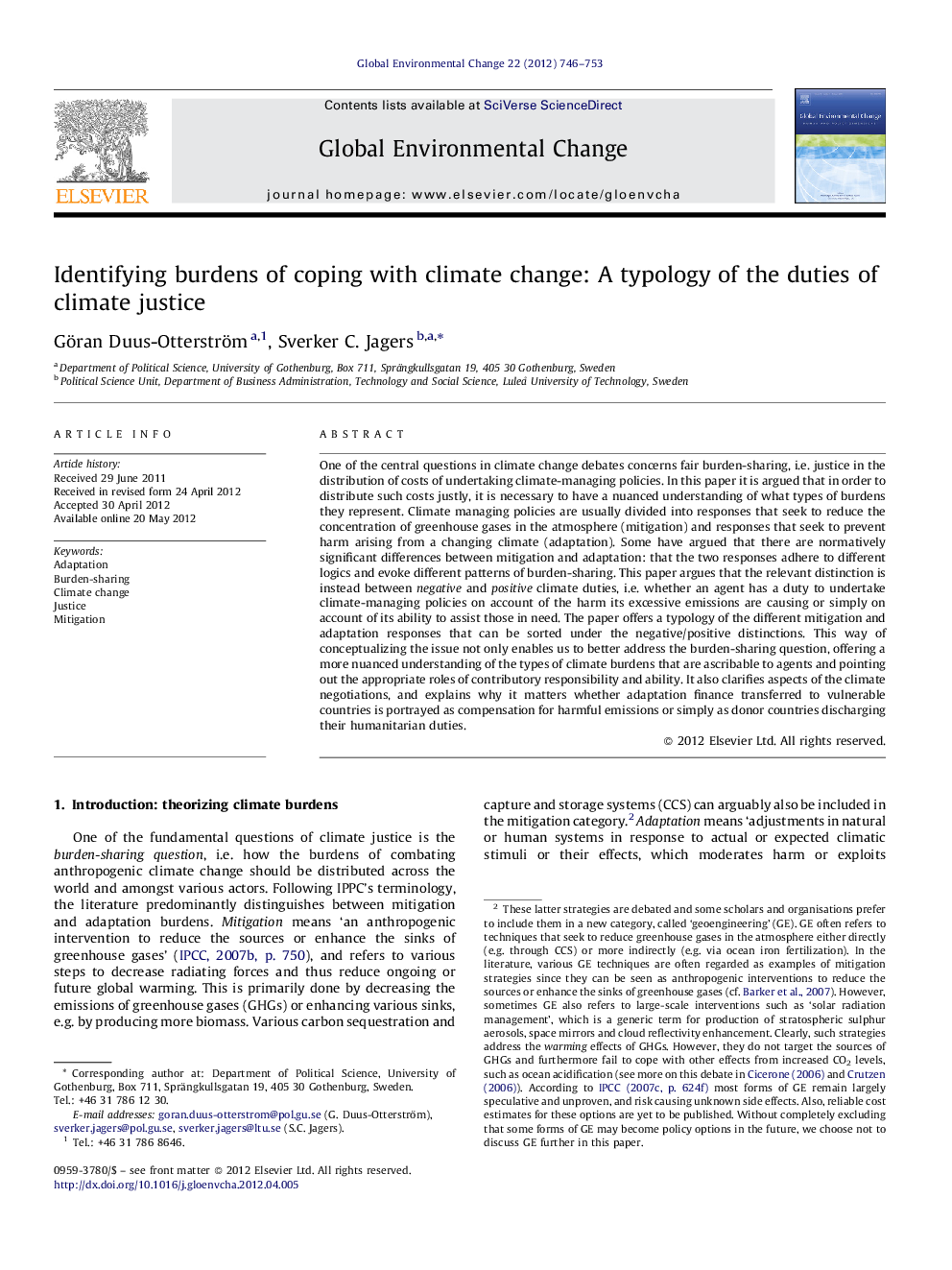| Article ID | Journal | Published Year | Pages | File Type |
|---|---|---|---|---|
| 1054776 | Global Environmental Change | 2012 | 8 Pages |
One of the central questions in climate change debates concerns fair burden-sharing, i.e. justice in the distribution of costs of undertaking climate-managing policies. In this paper it is argued that in order to distribute such costs justly, it is necessary to have a nuanced understanding of what types of burdens they represent. Climate managing policies are usually divided into responses that seek to reduce the concentration of greenhouse gases in the atmosphere (mitigation) and responses that seek to prevent harm arising from a changing climate (adaptation). Some have argued that there are normatively significant differences between mitigation and adaptation: that the two responses adhere to different logics and evoke different patterns of burden-sharing. This paper argues that the relevant distinction is instead between negative and positive climate duties, i.e. whether an agent has a duty to undertake climate-managing policies on account of the harm its excessive emissions are causing or simply on account of its ability to assist those in need. The paper offers a typology of the different mitigation and adaptation responses that can be sorted under the negative/positive distinctions. This way of conceptualizing the issue not only enables us to better address the burden-sharing question, offering a more nuanced understanding of the types of climate burdens that are ascribable to agents and pointing out the appropriate roles of contributory responsibility and ability. It also clarifies aspects of the climate negotiations, and explains why it matters whether adaptation finance transferred to vulnerable countries is portrayed as compensation for harmful emissions or simply as donor countries discharging their humanitarian duties.
► Duties to take climate action should be divided into positive and negative duties. ► Negative/positive distinction does not track adaptation/mitigation distinction. ► Negative duties not to harm can only befall polluters. ► Positive duties to aid can befall non-polluters, if they are well-off. ► This typology offers a more nuanced understanding of the question of burden-sharing.
